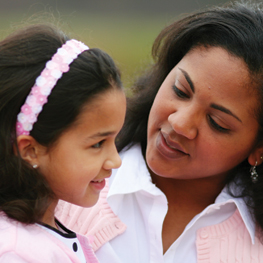
Becky’s parents divorced when she was 15 years old. Her family’s troubles and her coping mechanisms began much earlier. Kids cope with family trouble in different ways. Some kids withdraw; others act out. Becky coped through achievement.
She couldn’t yet articulate it in junior high when the trouble at home began to escalate. She remembers feeling if I am ‘good enough,’ ‘do enough’ and ‘achieve enough’, she thought she could somehow make up for the disorder and chaos in her family by overachieving.
In eighth grade, Becky was making straight A’s. She was president of the choir and the student council secretary. By ninth grade, when her parents were fighting more, she became president of the choir, swam all-district on the swim team and still made the honor roll.
In the height of her achievement and family struggle, Becky felt alone, isolated and abandoned, even though she worked very hard to make everything look alright on the outside. A sense of abandonment often occurs for children of all ages when parents separate or divorce. Caring adults can be helpful to children if they support the child’s own grief process regarding divorce. Most children, regardless of their age, will open up and talk about the traumatic event in their own time without prompting if they feel safe to do so and if they feel reasonably sure that they will be heard.
Recovering from divorce is a process for all. Establishing a co-parenting relationship that works is a key component to divorce recovery. Co-parenting is the process by which unmarried parents resolve to parent as a team in relative agreement with each other regarding the business of raising children. No one is born with these skills. We all have to learn them. As a clinical sociologist, I facilitate co-parenting education groups with a partner, David Saavedra, a clinical social worker, and marriage and family therapist.
We share the following steps about beginning to recover from divorce and co-parent:
1. Re-establish family routines as soon as possible.
2. Continue family traditions, such as holiday and birthday traditions.
3. Spend extra time together. This creates opportunities for children to share their feelings naturally, allowing them to unfold over time.
4. When your child talks about their feelings, assure them that it’s okay to feel what they are feeling but that they will not feel bad forever.
5. Be sure to speak respectfully about the other co-parent around your child. Do not assassinate the character of the other co-parent. They share the same DNA. To criticize a co-parent is to criticize your child.
6. Work through your own grief about ending the marriage with a therapist, clergy member or support group. While you can be honest with your child and acknowledge that you are sad about the divorce, too, do not burden your parent-child relationship with your own grief work. Your child needs you to remain in control as the parent.
7. Establish a co-parenting agreement about the business of raising your children.
8. Above all, assure your child that they are loved by both their parents and that the divorce is not their fault, no matter what their age.
Youth have less sophisticated defence mechanisms than adults. They may have a less encumbered route to expressing their authentic selves if we allow them the individuality and space to work through their own process. Therapy is sometimes needed. Guidance and structure may help, but a parent’s role as cheerleader for true self-expression may just be the healing balm kids need the most.
Laura Reagan-Porras, MS, is a child advocate, sociologist and parenting journalist. She cheers on her two daughters.
Calgary’s Child Magazine © 2024 Calgary’s Child